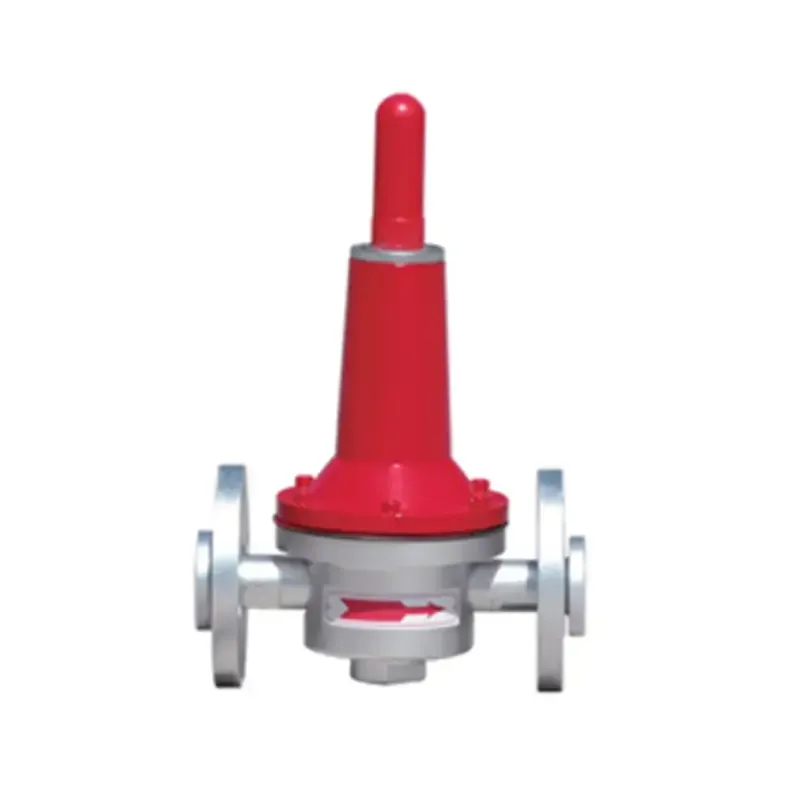
Nov . 06, 2024 05:00
Back to list
Gas Valve Operation and Maintenance Guide for Home Safety and Efficiency
Understanding Gas Valves An Overview
Gas valves are crucial components in various industries that utilize gas for energy, heating, production, or other purposes. These devices control the flow of gas, ensuring safety, efficiency, and functionality in gas-powered systems. From residential heating systems to industrial applications, gas valves play a vital role in maintaining the proper operation of equipment and machinery.
What is a Gas Valve?
A gas valve is a device designed to regulate the flow of gas to appliances such as heaters, stoves, and boilers. These valves come in different types, each intended for specific applications. The primary goal of a gas valve is to allow or restrict the passage of gas, ensuring the right amount is delivered when needed and preventing any leaks or hazards when the gas is not in use.
Types of Gas Valves
There are several types of gas valves, each serving unique purposes
1. Manual Gas Valves As the name suggests, these valves require manual intervention to operate. Users must open or close them to control the gas flow. They are commonly found in residential applications, such as natural gas furnaces or water heaters.
.
3. Solenoid Valves A subtype of automatic valves, solenoid valves use electrical signals to open or close. They are often employed in systems where gas delivery must be swift and responsive, such as in gas-fired engines or heating systems.
صمام الغاز

4. Safety Shut-off Valves These valves are designed to shut off the gas supply in case of a fault or emergency, preventing potential disasters such as explosions or fires. They are essential in both residential and industrial applications to ensure safety.
Importance of Gas Valves
The importance of gas valves cannot be overstated. They are integral to the safe operation of gas systems, helping prevent accidents and ensuring efficient gas use. Properly functioning gas valves can enhance energy efficiency by controlling the precise amount of gas delivered to appliances, minimizing waste.
Additionally, gas valves are essential in maintaining compliance with safety regulations. In many regions, strict guidelines govern the installation and maintenance of gas systems, including the use of certified valves. Ensuring that the right type of valve is installed and regularly inspected can significantly reduce the risk of gas leaks and other hazards.
Maintenance and Safety Considerations
Regular maintenance of gas valves is essential for their longevity and proper functioning. Homeowners and facility managers should routinely inspect valves for signs of wear, leaks, or corrosion. Any malfunctioning valve should be repaired or replaced immediately.
In terms of safety, it is crucial to know the location of gas shut-off valves in both residential and commercial properties. In case of an emergency, knowing how to quickly access these valves can prevent critical situations from escalating.
Conclusion
In summary, gas valves are a fundamental part of any system that uses gas as a source of energy. Understanding their types, functions, and importance is essential for safety, efficiency, and compliance with regulations. Regular maintenance and proper use of these valves are key to ensuring they perform effectively, helping to prevent accidents and enhance the overall reliability of gas-powered systems. As technology advances, the design and functionality of gas valves continue to evolve, contributing to the safety and efficiency of gas usage across various industries.
Next:
Latest news
-
Safety Valve Spring-Loaded Design Overpressure ProtectionNewsJul.25,2025
-
Precision Voltage Regulator AC5 Accuracy Grade PerformanceNewsJul.25,2025
-
Natural Gas Pressure Regulating Skid Industrial Pipeline ApplicationsNewsJul.25,2025
-
Natural Gas Filter Stainless Steel Mesh Element DesignNewsJul.25,2025
-
Gas Pressure Regulator Valve Direct-Acting Spring-Loaded DesignNewsJul.25,2025
-
Decompression Equipment Multi-Stage Heat Exchange System DesignNewsJul.25,2025

